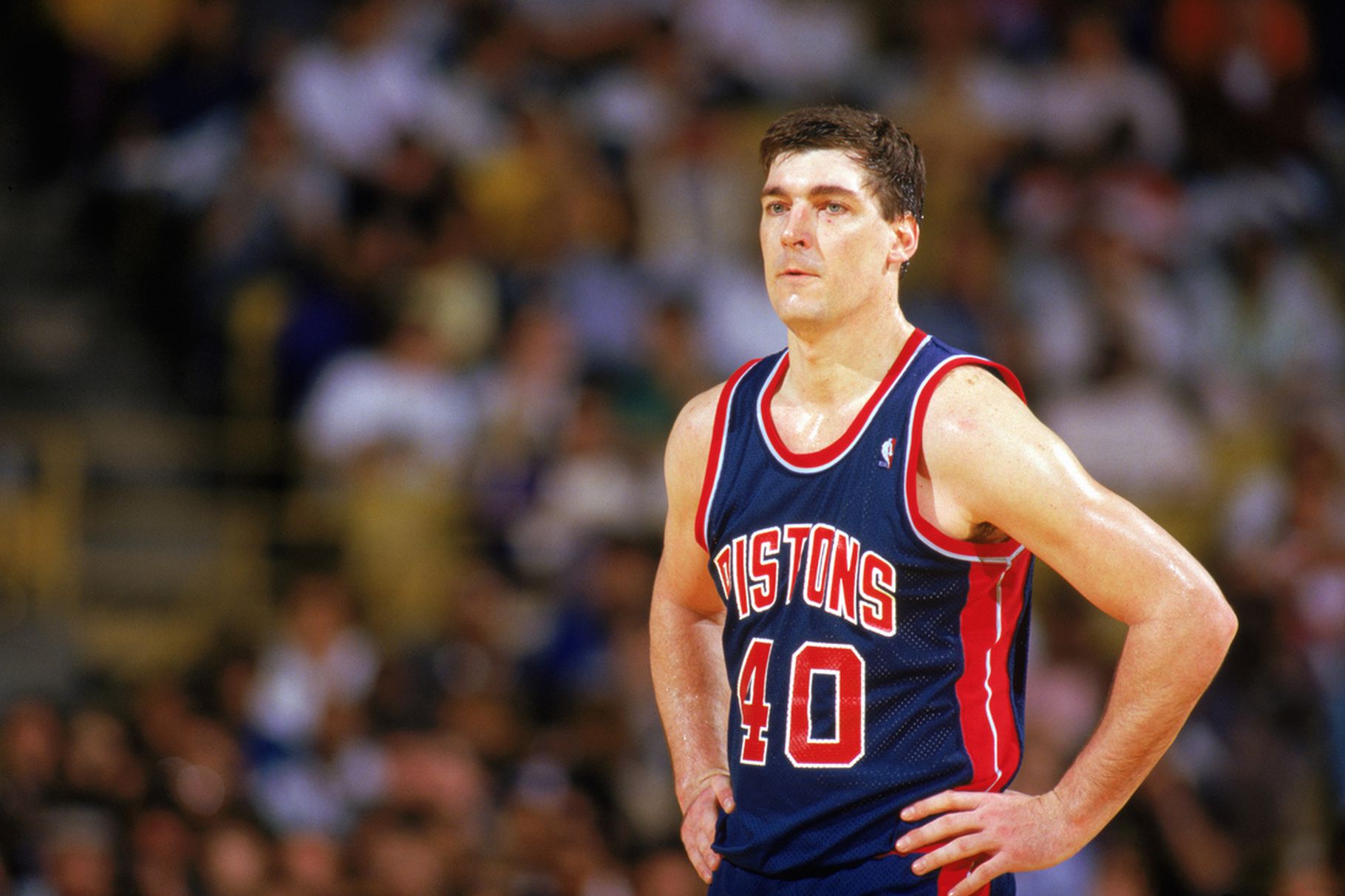In a moment of intense frustration, Celtics center Robert Parish swung his right forearm at the head of Pistons forward Bill Laimbeer after failing to grab a rebound. Parish had enough of Laimbeer’s physical play and finally reacted in a manner Laimbeer secretly hoped he would. The 1987 Eastern Conference finals, and the rest of the NBA, had been completely altered by the actions of one team–the Detriot Pistons. The Pistons-Celtics rivalry symbolized the atmosphere of the NBA in the 1980s. The league had some of the most talented basketball players of all time, but somewhere between all the gaudy talents, sportsmanship was lost.
The “Bad Boy” Detroit Pistons epitomized the league’s problem with sportsmanship: renowned for their dirty play, the Pistons did whatever it took to win. Despite being led by generational talents such as Isiah Thomas and Dennis Rodman, the Piston’s hard-nosed defense and tendency for mayhem defined the team during the 1980s. An unprecedented number of technical fouls committed by the Pistons earned them the “Bad Boys” nickname. However, the Pistons weren’t just bad–they were also incredibly sound as a team. They won NBA championships in 1989 and 1990.
Bill Laimbeer is synonymous with the Detroit Pistons and terrible sportsmanship. Laimbeer was accustomed to being disliked by his opponents; in fact, Laimbeer may be the most hated NBA player of all time. Multiple NBA players physically fought Laimbeer on the hardwood – including Larry Bird. Bird wasn’t fond of Laimbeer’s style of play, mentioning, “We don’t like him too good,” to Sports Illustrated. Nicknamed the “prince of darkness,” Laimbeer had his fair share of critics. He became an expert at using his elbow to his advantage, muscling his way to the basket. Opposing fans loved to hate him, and opposing teams hated playing against him. Laimbeer became the unofficial figurehead of bad sportsmanship and embraced it wholeheartedly.

Caught up in the Laimbeer’s antics, fans and players of the league assumed Laimbeer was a villain, and rightly so–his actions clearly warranted a negative response. Laimbeer was not a good sportsman to his opponents, but he was the best sportsman to his teammates. “The only respect and admiration I need is of the 12 teammates on our ball club,” Laimbeer once told Quinn Buckner. Laimbeer passionately fought for his teammates. No matter what it took, he struggled to win. Disguised behind the toughness, Laimbeer cared for his teammates and ignored what the public said about his character. As long as he had the respect of his teammates, Laimbeer knew he was doing something right.
Despite the poor connotation that consumed Laimbeer’s career, he was a great basketball player. He is the Detroit Pistons all-time leader in rebounds, had his number retired by the organization, and was elected to four All-Star games. His absurd physical toughness and endurance were put on display after playing 685 consecutive games, a testament of his devotion to his teammates. Laimbeer’s complicated history with sportsmanship takes away from his individual accomplishments and his “team-first” attitude. Although Laimbeer used questionable tactics to win, his intentions and motives always followed his purpose–to play for his teammates like they were family.
Laimbeer and the Detroit “Bad Boys” redefined sportsmanship in the NBA. The team was a dominant force, even with their unconventional playing style. The 1980s was a unique time in NBA history, which saw the emergence of the Showtime Lakers, Bird’s Celtics, and Jordan’s Bulls. But in this time of excitement, the Pistons shed a dark light on the NBA and demonstrated how dysfunctional the NBA’s rules and regulations really were. Laimbeer capitalized on his chance to become a part of the NBA’s most interesting period of history, and did so by maturing into the “worst-best” sportsman of all time. Laimbeer’s legacy will forever recognize his unique combination of toying with the opposition and playing his heart out for his teammates.
